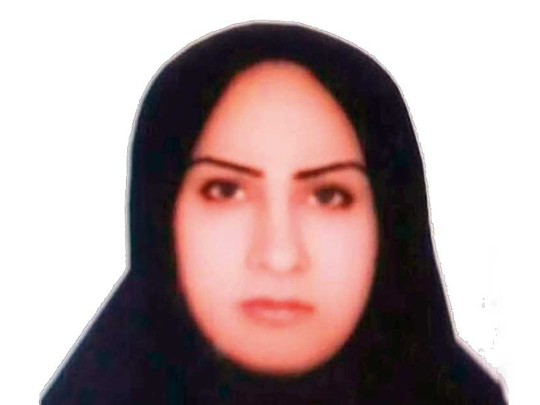
Tehran: Iran executed 24-year-old Iranian Kurdish woman Zeinab Sekaanvand, who was a victim of domestic abuse and sexual violence, early on Tuesday morning in Urumieh central prison, West Azerbaijan province.
“The execution of Zeinab Sekaanvand is a sickening demonstration of the Iranian authorities’ disregard for the principles of juvenile justice and international human rights law,” Philip Luther, Amnesty International’s Research and Advocacy Director for the Middle East and North Africa, said.
“Zeinab was just 17 years old at the time of her arrest. Her execution is profoundly unjust and shows the Iranian authorities’ contempt for the right of children to life. The fact that her death sentence followed a grossly unfair trial makes her execution even more outrageous,” he said.
Zeinab Sekaanvand came from a poor and conservative family and ran away from home when she was 15 years old to marry Hossein Sarmadi, who was four years older than her. She said that she saw her marriage to Hossein Sarmadi as the only opportunity she had for a better life.
However, not long after the couple were married, she said her husband started abusing her verbally and physically, beating her regularly. She requested a divorce from him several times, but he refused.
“Zeinab Sekaanvand said that, soon after she was married at 15, she sought help many times from the authorities about her violent husband and alleged that her brother-in-law had raped her repeatedly,” Luther said.
She registered many complaints with the police about the abuse, but the police consistently failed to conduct any investigation into her complaints.
“Instead of investigating these allegations, however, the authorities consistently ignored her and failed to provide her with any support as a victim of domestic and sexual violence,” the Amnesty official said.
She also tried to return to her family but was disowned by them after she ran away.
She was jailed, while still legally a juvenile, for stabbing him to death. She later retracted her confession, saying it had been extracted under duress.
“After the murder of her husband, Zeinab Sekaanvand said she was interrogated under torture by male police officers without a lawyer present. During her final trial session, where she was allowed a lawyer for the first time, she retracted her earlier ‘confession’ that she had murdered her husband, saying that she had been coerced to make it. Despite this, the judge refused to order a further investigation and instead sentenced her to death,” Luther said.
“It appears the Iranian authorities are increasingly scheduling the execution of people who were children at the time of the crime at very short notice to minimise the possibility of effective public and private interventions. We are horrified by their continuous use of the death penalty against people who were under the age of 18 at the time of the crime, which is a violation of international human rights law. This is the fifth execution of a juvenile offender that we have recorded this year and we fear that it will not be the last unless urgent action is taken by the international community,” the Amnesty official said
“We continue to urge the Iranian authorities to immediately establish an official moratorium on executions, commute all death sentences with a view to abolishing the death penalty, and prohibit the use of the death penalty against people below the age of 18 at the time of the crime.”












